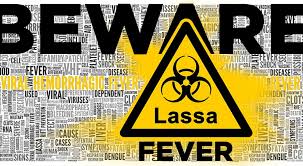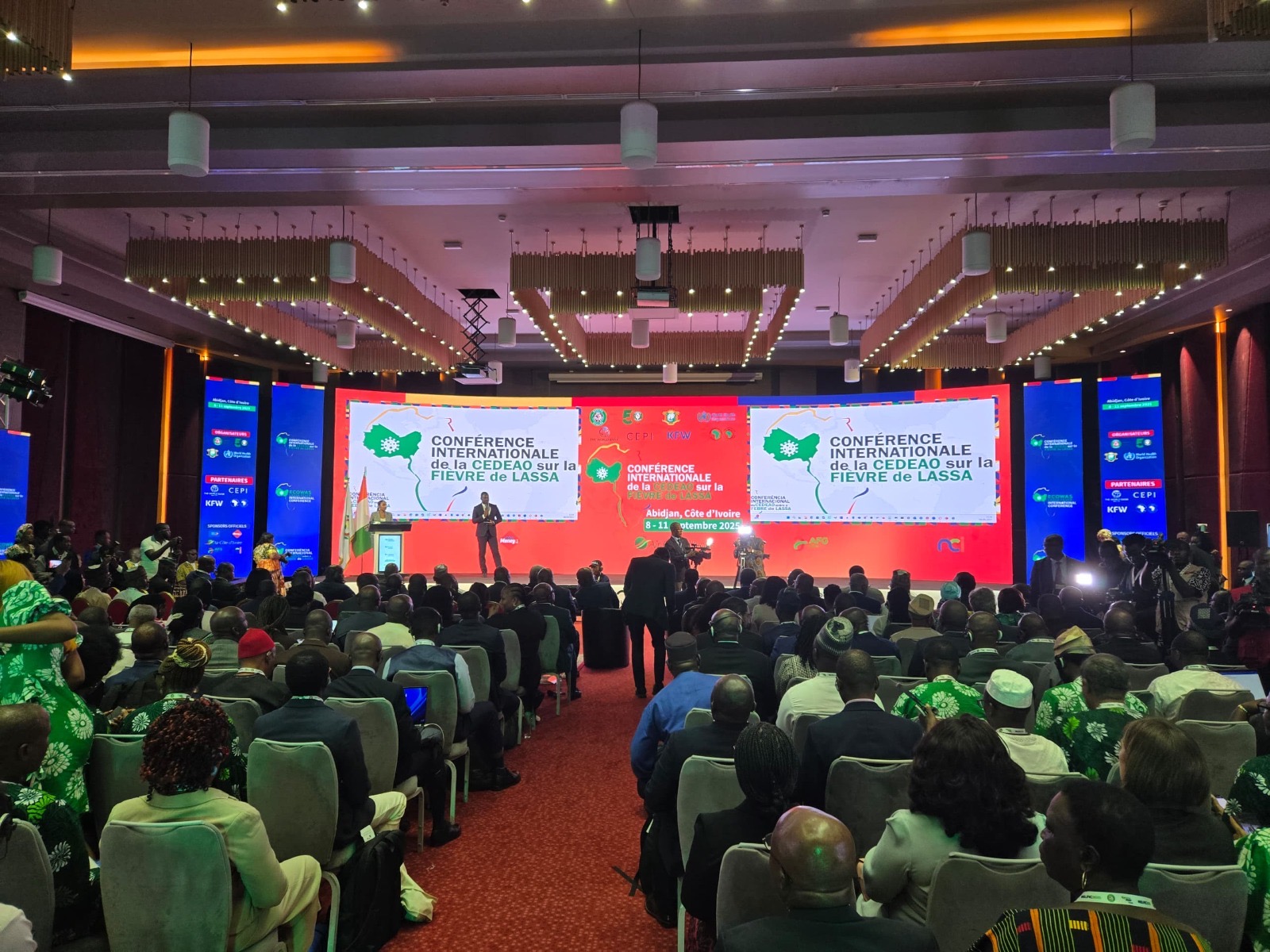News Analysis By Ismail Abdulaziz, News Agency of Nigeria (NAN)
Abidjan, Côte d’Ivoire, is this week hosting a gathering that could shape the future of West Africa’s health security.
The 2025 ECOWAS Lassa Fever International Conference (ELFIC) brings together scientists, policymakers, donors, and community leaders in a united front against epidemics that continue to strain the region’s fragile health systems.
The four-day forum is designed to strengthen vaccine acceptance and promote innovations in prevention and control.
Organised by the West African Health Organisation (WAHO), a specialised agency of ECOWAS, and its partners, the event is holding under the theme: “Beyond Borders: Strengthening Regional Cooperation to Combat Lassa and Emerging Infectious Diseases”.
At its core, the Abidjan conference aims to deepen cross-border preparedness, reinforce collaboration, and mobilise sustainable political commitment and financing to protect West Africa from present and future outbreaks.
This second edition follows the maiden ELFIC in Abuja, Nigeria, in 2019, which set the tone for regional cooperation against Lassa fever.
Since then, West Africa has endured hard lessons from Ebola, COVID-19, and Mpox.
Each of these crises underscored a simple truth: “No country can fight an epidemic alone”.
WAHO explained in its conference notes that, “early detection saves lives, and delays in access to vaccines and treatments cost communities dearly.
“Yet Lassa fever remains a persistent threat, causing seasonal outbreaks with limited tools for prevention and care.
“This conference matters because it turns those lessons into action; strengthening regional collaboration, advancing medical countermeasures, and ensuring West Africa is better prepared for future epidemics”.
Lassa fever, an acute viral haemorrhagic illness first identified in Nigeria in 1969, has become endemic in West Africa.
The World Health Organisation (WHO) estimates between 100,000 and 300,000 infections annually, with about 5,000 deaths.
Nigeria alone has reported over 8,000 confirmed cases and more than 1,500 deaths between 2018 and 2024, according to the Nigeria Centre for Disease Control and Prevention (NCDC).
Liberia, Sierra Leone, and Guinea also continue to face recurring outbreaks, while Ghana recorded its first-ever confirmed cases in 2022, signalling the virus’s potential spread beyond traditional hotspots.
Benin, Togo, and Mali have likewise documented sporadic outbreaks, often linked to porous borders and regional trade.
Imported cases in the United Kingdom and Germany further highlight the global implications of the disease.
The zoonotic nature of Lassa fever- spread through contact with infected multimammate rats and through human-to-human transmission in healthcare settings, makes it difficult to control without robust surveillance and rapid response systems.
Although promising vaccine candidates are now in late-stage trials, vaccine acceptance remains a critical obstacle.
WHO stresses that vaccines are among the most effective tools to protect communities, yet hesitancy persists across Africa.
Conference panellists identified mistrust, inadequate infrastructure, and misinformation; especially spread on social media, as major barriers.
They argued that vaccination campaigns often fail to adequately engage communities, leaving people suspicious of health workers who arrive during emergencies.
“During times of vaccinations, proper enlightenment is not carried out on the target population to foster significance and necessity for usage,” one panellist observed.
“This makes it easy for citizens to see the programme as a conspiracy”.
Historical incidents, such as resistance linked to the Pfizer meningitis trial in Kano State, Nigeria, continue to cast long shadows.
The absence of functional healthcare facilities in many endemic communities deepens suspicion, as residents question why interventions arrive sporadically rather than as part of sustained health services.
To address these challenges, experts at the conference proposed stronger collaborations with religious and community leaders, social media influencers, and youth ambassadors.
They stressed the importance of deploying knowledgeable health workers who can build trust and demonstrate respect for local contexts.
Speakers emphasised that West Africa cannot afford to repeat past mistakes.
Ebola, which killed more than 11,000 people in Guinea, Liberia, and Sierra Leone between 2014 and 2016, exposed fragile health systems and the dangers of delayed response.
COVID-19, while global in scale, also highlighted stark inequities in vaccine access, with African countries receiving supplies months later than richer nations.
Dr Melchior Athanase J. C. Aïssi, Director General of WAHO, warned: “This conference is a call to action to confront the persistent challenges associated with Lassa fever by advancing research, diagnostics, and community-led solutions, while enhancing preparedness and response strategies against zoonotic diseases”.
Similarly, the Mpox outbreak in 2022–23 reminded the region that emerging infectious diseases do not respect borders.
Cross-border collaboration, therefore, is not an option but a necessity.
For many participants, the Abidjan conference is more than another meeting.
They described ELFIC 2025 as a “critical step forward, from raising awareness to driving concrete commitments, partnerships, and innovations that will safeguard West Africa against current and future epidemic threats”.
The discussions have gone beyond technical research to focus on political will and sustainable financing.
Organisers hope to secure commitments from member states to invest more in diagnostics, vaccines, and community-led preparedness systems.
Crucially, they want to ensure that the gains from ELFIC are translated into real change at national and community levels.
Experts agree that Lassa fever’s persistence is not merely a medical challenge but also a test of governance, equity, and resilience.
With fragile health systems and limited fiscal space, West African countries often struggle to maintain surveillance and invest in research.
That is why WAHO and ECOWAS are pushing for stronger political commitment and long-term financing models.
Six years after the Abuja conference, the stakes are higher.
The world has changed, reshaped by global health crises that exposed vulnerabilities and tested systems.
In Abidjan, West Africa is signalling its determination not to be caught unprepared again.
What began as a scientific discussion in 2019 has now evolved into a broader movement; linking science, policy, and community action under a shared vision of resilience.
For WAHO and its partners, the task ahead is clear: turn lessons into action, embrace medical innovations, and above all, build trust between governments and the people they serve. (NAN)








